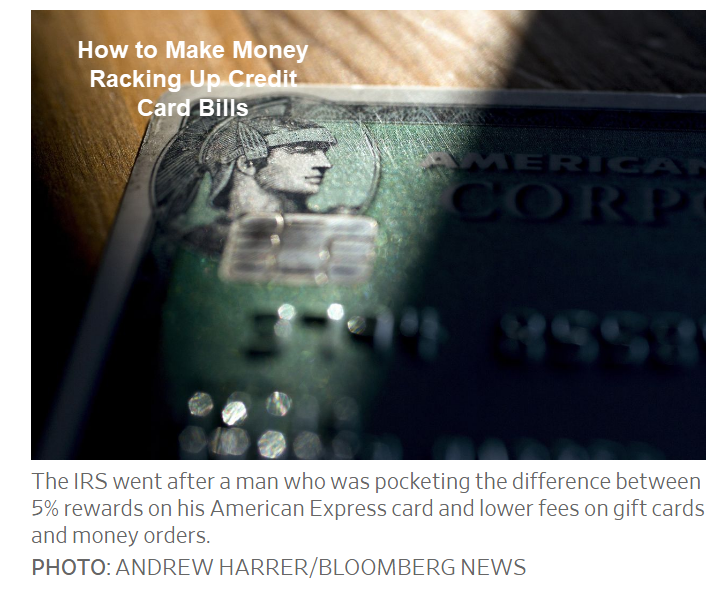Taxable Income Debate
A physicist’s financial experiment netted him $300,000 From Credit-Card Rewards now the IRS wants its cut.
Konstantin Anikeev, an experimental physicist, assembled everything he needed for an inquiry far outside his field.
His materials included American Express cards, the government’s view that credit-card rewards aren’t income, and his own willingness to spend time buying gift cards and money orders. He pulled the concept from personal-finance websites: Exploit the difference between unlimited 5% rewards and lower fees on gift cards and money orders.
Methodology
- American Express card offered unlimited 5% rewards at grocery stores and pharmacies after he had spent $6,500.
- Use reward cards to buy $1 coins from the US Mint. The transaction has no shipping charges.
- Used gift cards to buy money orders, then used the money orders to make deposits in his bank account, then used that money to pay his credit-card bill.
- In a $500 transaction, the 5% rewards would yield $25—more than enough to cover gift-card fees of about $5 and the $1 fee on the money order.
The IRS got interested in millions of these transactions by one person. The IRS took Anikeev to court where he was largely vindicated.
Tax Court vs Konstantin Anikeev
In US Tax Court vs Konstantin Anikeev, the court issued a split decision.
The court affirmed that credit-card rewards are usually nontaxable rebates. Buying anything for $100 and getting $5 back is akin to paying $95 in the first place.
Most of Anikeev’s transactions were of that nature.
Then it gets murky. The judge also ruled rewards earned on purchases of money orders or reloading debit cards are taxable.
Anikeev will owe some back taxes on a portion of that $300,000.
New Rules from American Express
American Express has rules on cash equivalents and will undoubtedly strengthen them.
The IRS will likely make rules changes as well.
For now, I cheer Anikeev for his ingenuity.
His lawyer said “He’s a very mathematical, brilliant person. And this was just something he thought was fun.“
Mish



How did he get to spend so much in credit? Was he being funded by someone?
He kept paying the bill with the money orders. Given enough time it just keeps making money.
The ruling that rewards on buying money orders and reloading debit cards are income makes criminals of even the most honest people using those services. And with that legal precedent, those companies, through no fault of their own, may see their businesses suffer because a judge legislated from the bench.
The best thing the judge could have done is declare the actions legal and let the IRS request Congress pass a law to define rebates, coupons, rewards and frequent flyer miles.
I am not a lawyer but are you saying that this ruling will make the money saved by using coupons taxable?
I wanted to avoid entering coupons, rebates, and discounted sale prices in the discussion because I had not thought out my arguments to exclude them from the possibility of taxation.
The judge didn’t rule it illegal. He ruled that earning cash back rewards on purchasing gift cards and money orders is merely a taxable event. He was basically earning 5% by converting a cash equivalent from one form to another. Coupon rebates are a non-taxable event. That is a discount offered by a manufacturer or store. This ruling will not effect your average person.
He was being gifted for doing so, and so the credit company should pay the tax
?
Sounds like an updated version of the coupon queen
Why not just deposit the $1 coins directly into his bank account?
I think he did. As I understand the above:
He had no fees on the coins. He did have fees on the gift cards and money orders, but they were smaller than his rewards cards.
A Great arbitrage! When it comes to arbitrage scientists rule.
Brilliant! My hat is off to anybody who can beat the sleazeball CC companies….or the IRS, which is even better.
Way to out-scam the scammers.